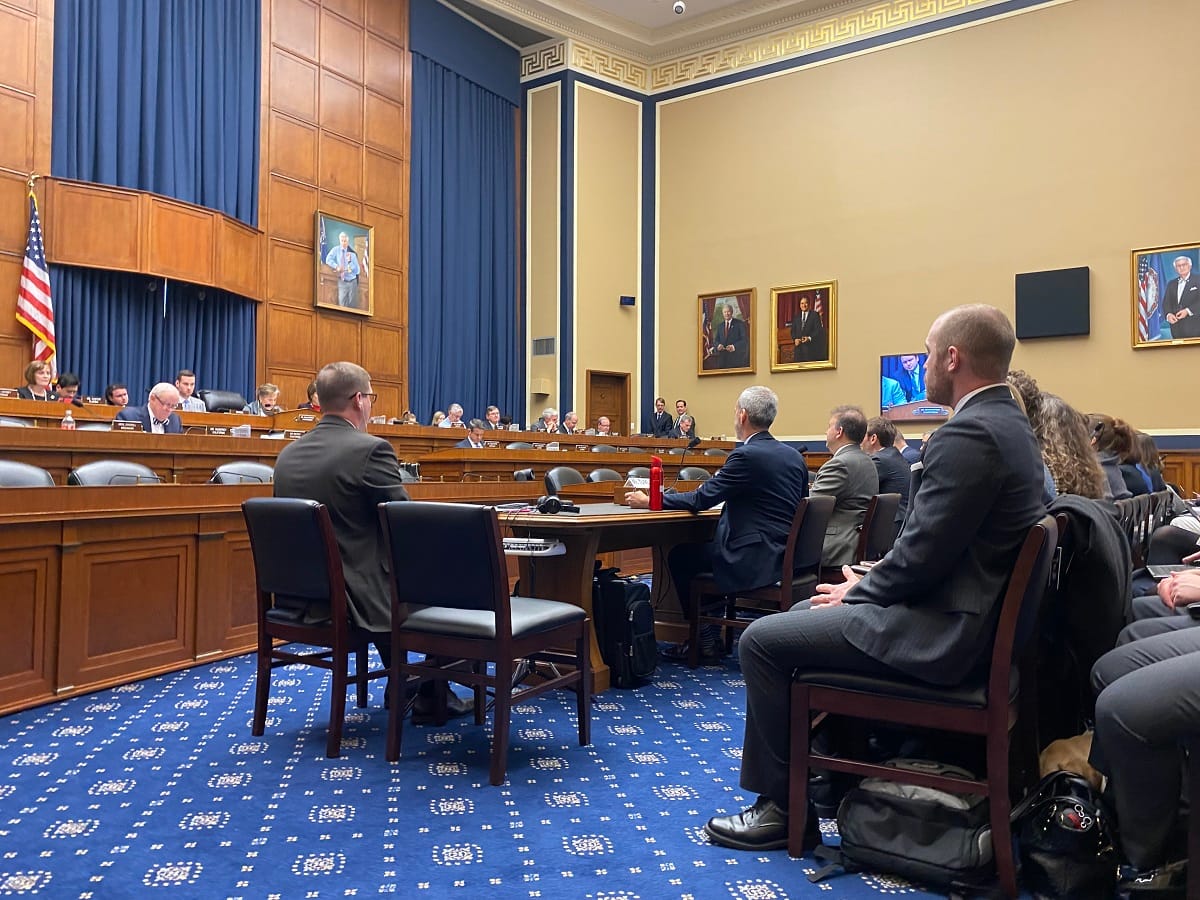Pro-Tech and Disability Advocates Criticize Time-Consuming Process for Autonomous Vehicle Safety at House Hearing
WASHINGTON, February 12, 2020 – Technology advocates and disability activists on Tuesday used a hearing of an Energy and Commerce subcommittee to criticize the National Highway Traffic Safety Administration’s time-consuming process to alter the rules surrounding autonomous vehicles. Consumer Technol

WASHINGTON, February 12, 2020 – Technology advocates and disability activists on Tuesday used a hearing of an Energy and Commerce subcommittee to criticize the National Highway Traffic Safety Administration’s time-consuming process to alter the rules surrounding autonomous vehicles.
Consumer Technology Association CEO Gary Shapiro and National Federation of the Blind President Mark Riccobono agreed. “Accessibility and innovation go hand in hand,” Riccobono said. Companies are encouraged to create and innovate if exemptions are available, Riccobono stated.
Advocates for Highway and Auto Safety President Cathy Chase said the NHTSA is in need of additional help as its budget continues to decrease. The regulation for automated vehicles doesn’t exist and “minimum performance standards” are imperative, said Chase.
Chase advocated for an increased focus on safety right away. In her written statement, Chase wrote, “the race to ‘build it first’ should never overshadow the need to ensure readiness for broad public use in real life scenarios.”
But Shapiro said exemptions are crucial for innovation because automated vehicles will save lives regardless, and performance and regulation will never be able to guarantee no deaths.
In 2018, more than 100 people died daily from car crashes, said John Bozzella, CEO of Alliance for Automotive Innovation. He asked congress to consider a “regulatory framework” that would help decrease fatalities through safe automated vehicles.
American Association of Justice State Affairs Counsel Daniel Hinkle said automated vehicle legislation should hold producers accountable for damages or injuries inflicted on AV customers. “The difference between an automated vehicle and a human driven vehicle is a promise—a promise from the manufacturer of the automated driving system that their system can perform the entire dynamic driving task without in-vehicle supervision,” Hinkle said.
Hinkle also asked that the public “not be forced into arbitration.” “The one-sided and secretive nature of forced arbitration is established at the onset wherein companies, rather than individuals, choose the private company which will administer the forced arbitration proceeding, the payment terms, and the rules,” stated Hinkle.
Riccobono boasted the unparalleled prospects automated vehicles would open to the blind community. “100 percent of accidents today are caused by sighted drivers,” said Riccobono to laughter.
Riccobono is pleased that accessibility has been included in the automated vehicle discussion because it is usually an afterthought, he said. He asked congress not to enforce regulatory restrictions that might exclude the blind from accessing automated vehicles.
Not only will automated vehicles provide feasible transportation for the blind community, but increase workforce participation, said Riccobono.








